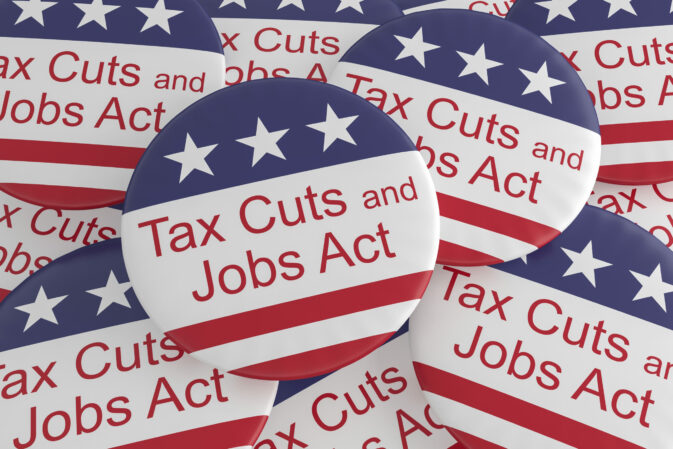Bipartisan tax deal can pave the way for longer term improvements in 2025

A bipartisan agreement in Washington is shaping up to be a win for small businesses and the larger U.S. economy. Earlier this month, congressional committee leaders announced a tax cuts deal that revives expired elements of the 2017 Tax Cuts and Jobs Act. Key components include restoring expanded small business deductions and full expensing for research and development.
Congress should move swiftly on the proposal before tax filing season is officially underway. Main Street has been through the wringer, and these changes would be a welcomed economic catalyst.
Although the rate of inflation has moderated, wholesale prices — or prices often paid by small businesses — have increased by more than 20 percent over the past three years. The budgetary blackhole has left employers struggling to cover wages, overhead and equipment costs. And to pile on, higher interest rates are making it more expensive to access credit that could help fill these gaps. January polling reveals nearly two-thirds of small businesses are concerned about the rising cost of borrowing.
The regulatory backdrop is also contributing to the rough Main Street landscape.
The Biden administration, for example, is rolling out new rules that compromise the small business franchise system, dampen the flexibility of independent contractors, and jeopardize intellectual property protections. Unlike large corporations, small employers have fewer resources to navigate an increasingly complex web of government red tape. Changes hit them the hardest.
As the founder and owner of a small manufacturing company in rural Pennsylvania, I’m well-versed in the challenges that entrepreneurs face. While my business now successfully employs more than 150 people — ranging from janitorial staff to highly-skilled engineers — it wasn’t always sunshine and rainbows. The early days were hard.
I mortgaged my house seven times to keep the company afloat and operated at a financial loss for two and a half years. And that was nearly three decades ago. Given 2024 economic realities, kudos to the entrepreneurs who are able to successfully start and maintain a business.
The tax cuts revival on the table in Congress is an opportunity to once again smooth the path for small business ownership. The proposed changes will restore a tax code that allows businesses to keep more of their own money while encouraging economic growth through research, development and investment. The move will rev-up the country’s economic engine while driving innovations that increase standards of living.
The economic surge following the initial passage of the 2017 tax cuts package is proof the strategy works. The immediate expensing for capital equipment, for example, was a game-changer.
My business and its employees provide an informative snapshot. Armed with the resulting tax savings, we were able to build a new laboratory, invest in new chemical compounding equipment, and purchase updated packaging lines. On the human capital front, employees enjoyed higher bonuses, a new 401(k) program, and dozens of new colleagues.
With the right policies in place, the success can be replicated with more businesses having the opportunity to expand and grow like mine did.
Congress’s tax reform deal is a step in the right direction, but it is by no means a silver bullet. The changes only extend through 2025 when the rest of the Tax Cuts and Jobs Act — consisting of broader tax breaks — is also scheduled to sunset. The timetable emphasizes the need for a larger, more long-term agreement next year.
The current Congress can start the job but it is up to policymakers in 2025 to finish it.




